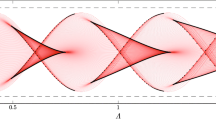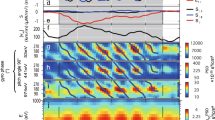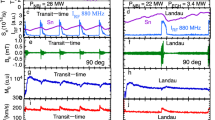Abstract
THE cyclotron at present has a limited voltage amplification due, in part, to a space charge built up within the duants. The space charge density may be lowered by reducing the intensity of the ion beam alone, or by increasing the high-frequency alternating potential on the duants, thereby reducing the number of times the ion must circulate before attaining the desired velocity. These two methods of lowering the space charge are obviously undesirable. If the number of times the ions is accelerated in one revolution is increased there will be a resultant decrease in space charge density.
This is a preview of subscription content, access via your institution
Access options
Subscribe to this journal
Receive 51 print issues and online access
$199.00 per year
only $3.90 per issue
Buy this article
- Purchase on Springer Link
- Instant access to full article PDF
Prices may be subject to local taxes which are calculated during checkout
Similar content being viewed by others
Author information
Authors and Affiliations
Rights and permissions
About this article
Cite this article
MOON, R., HARKINS, W. Use of Multiphase Oscillators with a Cyclotron (Lawrence) for the Production of High-Velocity Particles. Nature 137, 316–317 (1936). https://doi.org/10.1038/137316b0
Issue Date:
DOI: https://doi.org/10.1038/137316b0
Comments
By submitting a comment you agree to abide by our Terms and Community Guidelines. If you find something abusive or that does not comply with our terms or guidelines please flag it as inappropriate.



